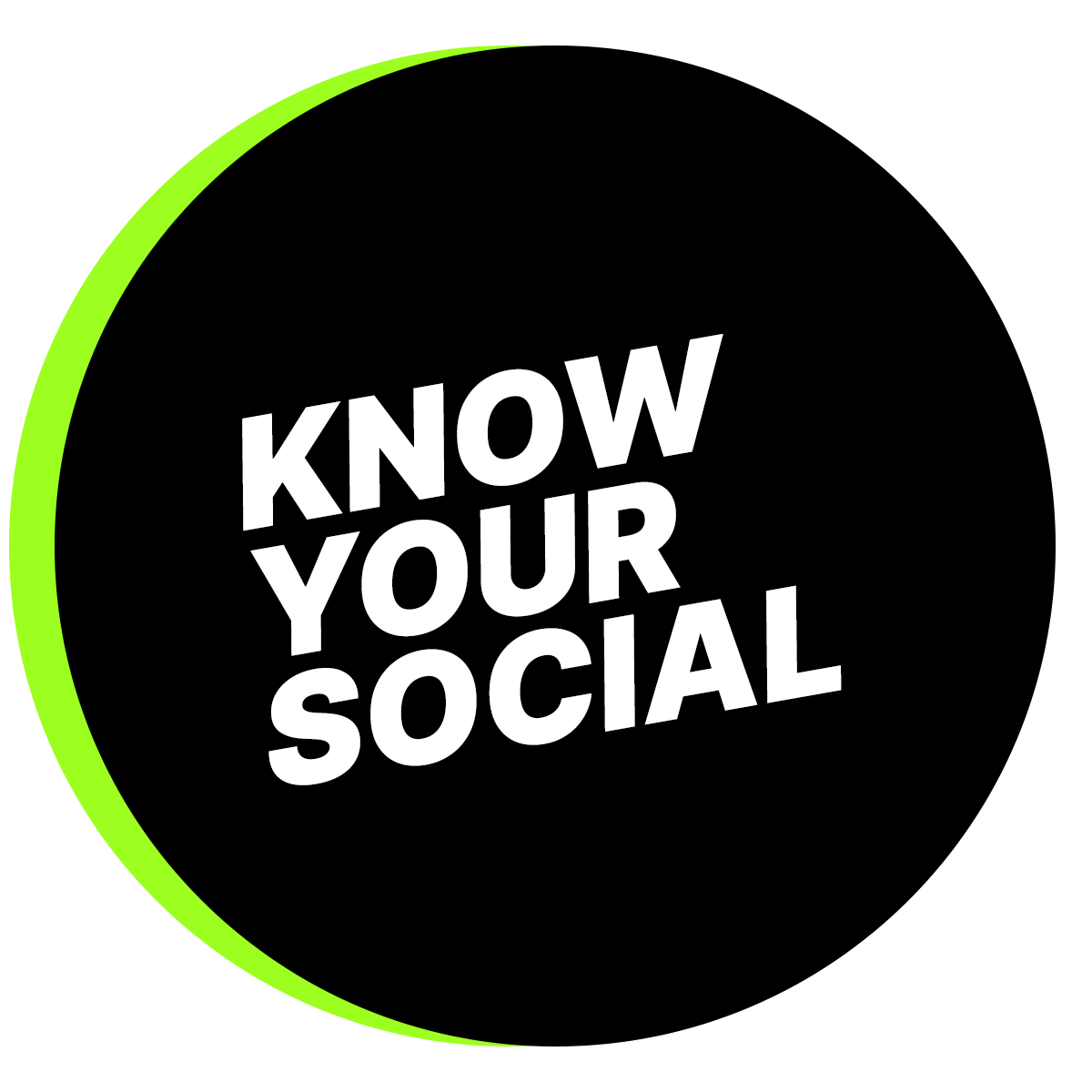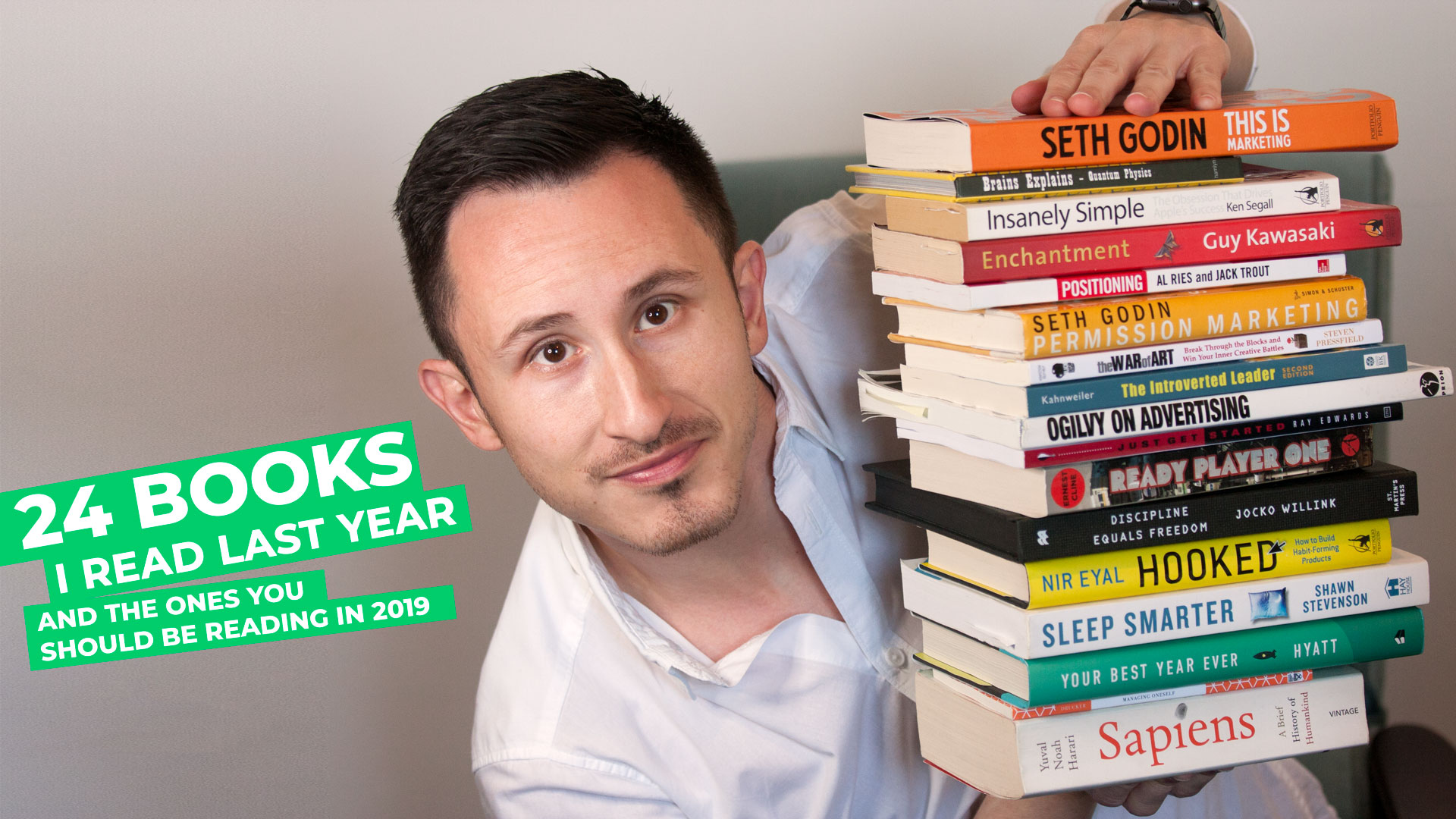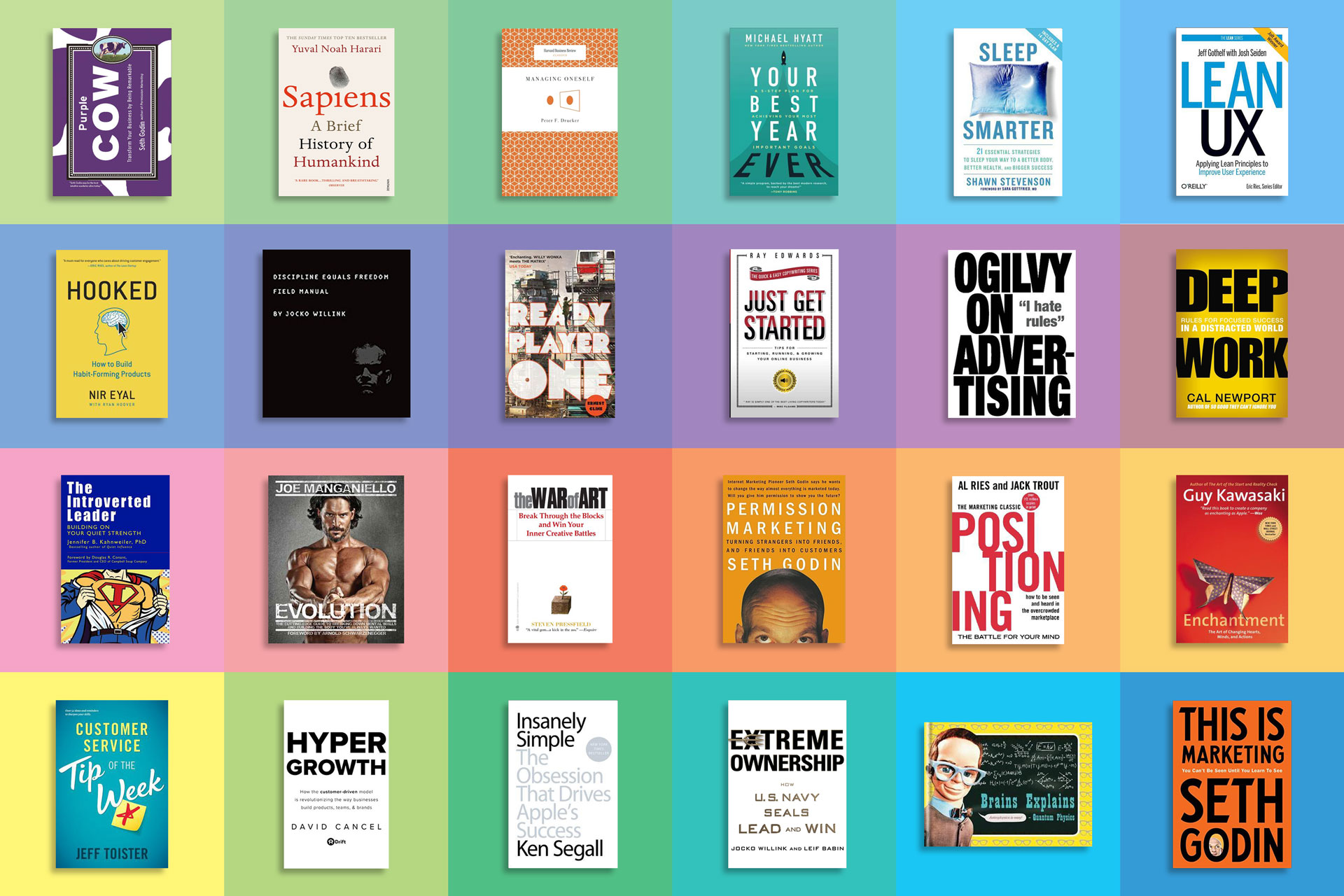It’s inspiring to see how the daily, automatic and almost insignificant habits shape who we are.
I had read 1 book in 2016, then 20 books in 2017 and now 24 books in 2018!
This reading habit transformed my thinking.
“In my whole life, I have known no wise people (over a broad subject matter area) who didn’t read all the time — none, zero.” Charles T. Munger
It turns out that it’s never too late to learn. In a world where change is the only constant, reading books remains the one shortcut to becoming better versions of ourselves.
So, here are the books that shaped my thinking in 2018 and the ones which you should be reading in 2019.
Books 3, 7, 15 and 24 are must-reads!
Happy learning! #ReadtoLead
1. Purple Cow: Transform Your Business by Being Remarkable (Seth Godin)
Reading Seth Godin is always a good idea! Among all the generic businesses out there only a few choose to be remarkable. Purple Cow got me thinking about how to build something worthy of attention, a unique product, something worth sharing and how to include a “purple cow” in each product.
Read to: get into the mindset to create meaningful products.
My rating: ★★★★☆
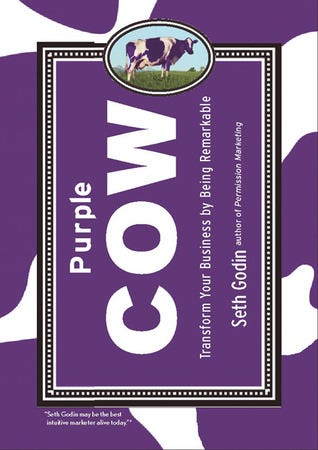
2. Sapiens: A Brief History of Humankind (Yuval Noah Harari)
I had heard a lot of hype about this book and was interested in getting a better understanding of human history. The first part of the book is fascinating and a page-turner. I was particularly intrigued by the human evolution bit up till to when humans settled around farms (around 12,000 years ago). But, the second half of the book is somewhat dragging and turns into what feels like the author’s opinions rather than actual historical facts. Some of which are inquisitive to consider… others not!
Still, quite a good read.
Read to: get a primer on human’s history and a few topics for casual conversation.
My rating: ★★★☆☆
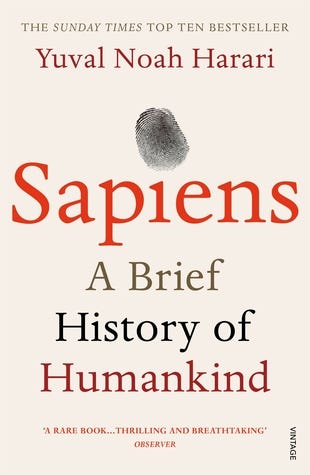
3. Managing Oneself (Peter F. Drucker)
Wow! So much insight in this tiny book! What are your strengths? How do you get things done? How do you learn? Do you prefer working with people or alone? Do you produce results as a decision maker or as an advisor? What are your values?
“Do not try to change yourself — you are unlikely to succeed. But work hard to improve the way you perform. And try not to take on work you cannot perform or will only perform poorly”
Read to: discover your best way of working and what’s next.
My rating: ★★★★☆
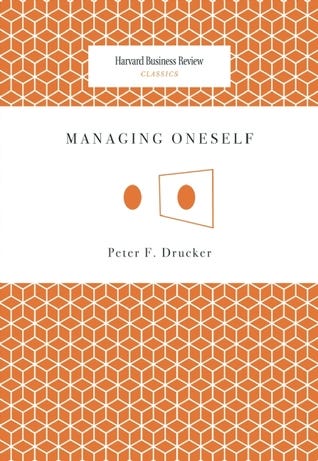
4. Your Best Year Ever: A 5-Step Plan for Achieving Your Most Important Goals (Michael Hyatt)
Having a clear direction for the year is the best way to a successful one!
Your Best Year Ever is a simple to follow framework to define and achieve your goals. It starts by looking at internal limiting beliefs and reviewing the past year. Then it goes into the details of how to set goals and how to design your goals across 10 areas: Spiritual, intellectual, emotional, physical, marital, parental, social, vocational, avocational and financial. What I love about it is that it covers all areas of life.
This is then followed by an action plan to make sure you are able to stick to your goals… something which I’ll be focusing more when I will re-read this in 2019.
Read to: Plan the goals for the year
My rating: ★★★★☆
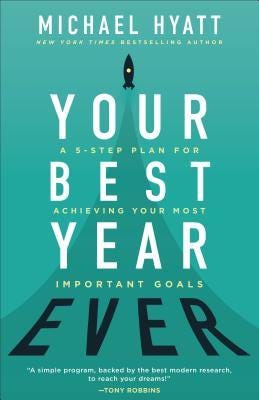
5. Sleep Smarter: 21 Essential Strategies to Sleep Your Way to A Better Body, Better Health, and Bigger Success (Shawn Stevenson)
Lack of consistent, quality sleep has been an issue for me for many years. And although I don’t usually read “tactical” books, this time I needed tangible actions to fix this. The book feels like a very long blog post with each chapter focusing on a thing to do to sleep better.
I got a few tips, but most of it was either obvious or too complex to try — which I wasn’t ready to commit so much to.
Read to: get some ideas on how to sleep better
My rating: ★★★☆☆
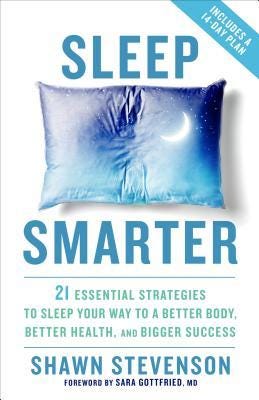
6. Lean UX: Applying Lean Principles to Improve User Experience (Jeff Gothelf, Josh Seiden)
Lean UX makes you focus on the actual experience being designed rather than deliverables. It is inspired by Agile and Lean methodologies to experiment with different designs, validate with users and go on continual adjustments.
What I really liked about these principles is the inclusion of the voice of the customer throughout the design and development processes.
Read to: learn a process to help you improve your product’s user experience.
My rating: ★★★★☆
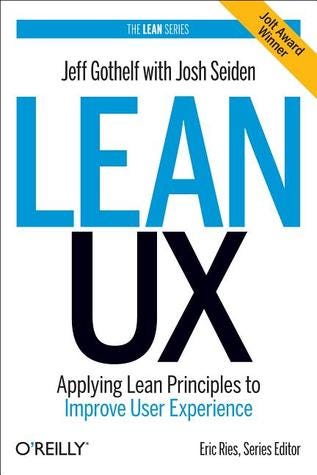
7. Hooked: How to Build Habit-Forming Products (Nir Eyal)
Every business wants to have users constantly coming back to their products.
This is a great read for any entrepreneur, product creator or product manager and I’ve used tips from this book with many of my clients. Reading this book feels like cheating!
“How do products create habits? The answer: They manufacture them. […] Today, small start-up teams can profoundly change behavior by guiding users through a series of experiences I call hooks. The more often the users run through these hooks, the more likely they are to form habits.”
Bonus: each chapter ends with a very tangible “DO THIS NOW” section with a number of exercises to go through.
If you have a startup or manage a product just read this book… or your competitor might!
Read to: create products which are engaging and which users keep coming to.
My rating: ★★★★★
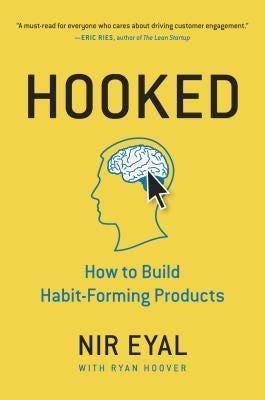
8. Discipline Equals Freedom: Field Manual (Jocko Willink)
This is a tough book where on every page you can hear Jocko Willink, a retired Navy SEAL officer, chasing you and shouting at you to push harder. Jocko wakes up at 4:30am every day to train and he posts about it on Instagram.
Part One is about “thoughts”; fears, negativity, overwhelm, motivation, pushing harder, focus, regret, not feeling it. The second part is about “Physical Training”; the mindset behind it, the food and the workouts.
“There is no shortcut. There is no hack. There’s only one way. So get after it.”
Read to: change your mindset on life and really own it.
My rating: ★★★★☆
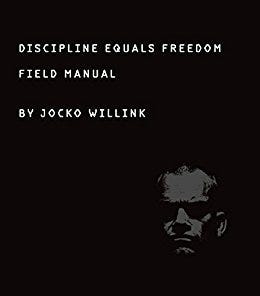
9. Ready Player One (Ernest Cline)
The movie is good but the book is on another level! Full of detail and 80s classic pop-culture. Just let the VR-headset take you into the OASIS and follow Wade Watts… [and I’m sounding like a movie trailer].
I originally started reading the book but then heard that the audiobook is pretty well narrated and continued on the audio version. It’s read by Will Wheaton for extra geekiness.
Read to: just enjoy it and spend some hours considering this possibility of this near-future world.
My rating: ★★★★☆
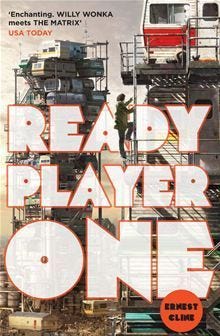
10. Just Get Started: Tips for Starting, Running, and Growing Your Online Business (Ray Edwards)
I’m definitely not the audience for whom this book must have been written. Also feels like a bunch of blog posts merged together into a book (nothing wrong with that, but I was expecting something more). With chapters like “Fast & Easy List-building” and “Quit working so hard so you can get more done”, this is a very basic intro to online business.
Read to: Introduce yourself to the world of online business if you’re totally new to it.
My rating: ★★☆☆☆
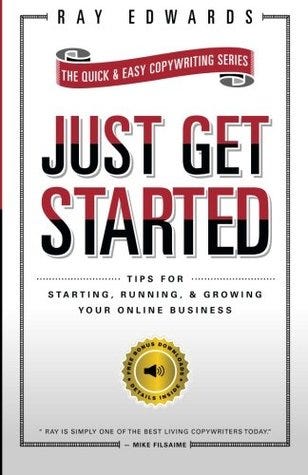
11. Ogilvy On Advertising (David Ogilvy)
Another classical gem! Written 35 years ago in 1983 but still extremely relevant today. Maybe even more relevant today when everyone seems to be a “ marketing expert”.
The book is beautifully laid out too, full of ad pictures from a different era, a sort of marketing time-machine. The copywriting chapter, subtitled with “God is in the details” should be read by everyone who’s ever going to create anything online (or offline!). Ogilvy here speaks about headlines, illustrations, body copy, layout, typography.
Will have to re-read it a couple of times more.
Read to: get an understanding of the advertising world from the Father of Advertising.
My rating: ★★★★★
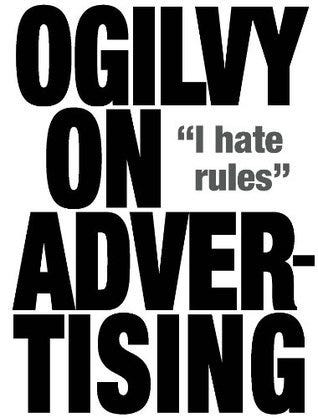
12. Deep Work: Rules for Focused Success in a Distracted World (Cal Newport)
Managing to focus on an important task is increasingly getting more difficult. To produce at your peak level you need to work for extended periods with full concentration on a single task, free from distraction.
The surprising part which resonated with me was “Rule #2: Embrace Boredom”. This was my main takeaway. Once your brain has become accustomed to on-demand distraction (Phone, Facebook, Instagram, Email etc… ), it’s hard to shake the addiction even when you want to concentrate.
To put this more concretely: If every moment of potential boredom in your life — say, having to wait five minutes in line or sit alone in a restaurant until a friend arrives — is relieved with a quick glance at your smartphone, then your brain has likely been rewired to a point where it’s not ready for deep work — even if you regularly schedule time to practice this concentration.
Read to: be able to focus for longer periods of time and increase productivity.
My rating: ★★★★☆
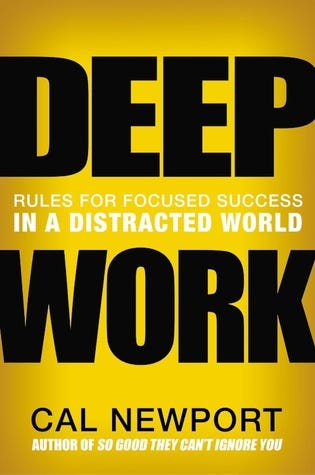
13. The Introverted Leader: Building on Your Quiet Strength (Jennifer Kahnweiler)
Having read Susan Cain’s “Quite”, I was expecting something of a similar depth and this wasn’t it. The author is an extrovert and at times seemed to be speaking about Introversion as something “to be fixed”… which is not the case.
Each chapter revolves around a 4 Ps framework: Prepare, Presence, Push and Practice and for each topic eg Networking, Managing up etc., the author speaks about tactics for each “P”.
I would see this as a very basic read for introverts to become better leaders but make sure you’ve read Quiet first.
Read to: get quick tips on how to work better as an introvert in a leadership position.
My rating: ★★★☆☆
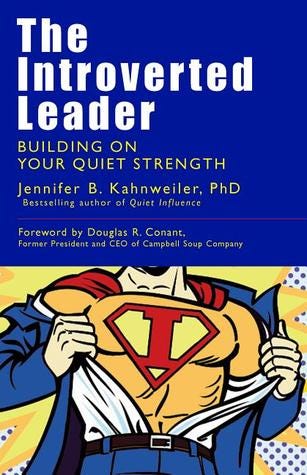
14. Evolution: The Cutting Edge Guide to Breaking Down Mental Walls and Building the Body You’ve Always Wanted (Joe Manganiello)
Staying consistent with physical training is difficult at times. I read this book when I needed some motivation to stay physically active and eating properly.
The book is great on the mental side of training to get motivated and also packed with tips on what to eat and how to train.
My biggest takeaway was the format of reps which I hadn’t seen anywhere else: 20, 15, 12, 10, 5, 8 and 16. This was weird, but I needed a change, so I tried it. Switching to this really helped me to push beyond a physical plateau. Maybe I just needed a change, maybe it really works (?)
Read to: get back to the gym or when you’ve hit a plateau.
My rating: ★★★☆☆
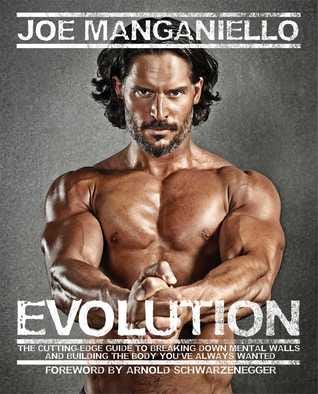
15. The War of Art: Break Through the Blocks & Win Your Inner Creative Battles (Steven Pressfield)
Thank God for deadlines! They seem to be the only cure for my procrastination. If you’ve ever tried to create something, you might be familiar with that feeling which stops you from finishing. That is “The Resistance”. The self-sabotaging force which blocks us from delivering work; particularly creative work.
“Fear doesn’t go away. The warrior and the artist live by the same code of necessity, which dictates that the battle must be fought anew every day. […] The most important thing about art is to work. Nothing else matters except sitting down every day and trying.”
This was a good wake-up call to work harder even when… especially when… “I don’t feel inspired”.
Read to: break through your inner blocks and deliver work that matters.
My rating: ★★★★☆
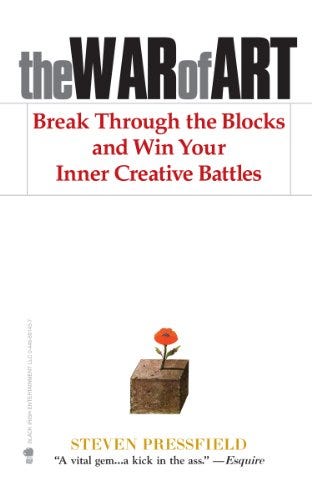
16. Permission Marketing: Turning Strangers Into Friends And Friends Into Customers (Seth Godin)
In 2018 we saw the GDPR coming into effect in Europe. Seth Godin was speaking about this 20 years ago!
This book is the basis for modern marketing and it focuses on how to get a person interested, turn her into a “friend” and then offer a sale. This is exactly opposite to all the interruption marketing which we constantly get bombarded with.
The examples in the book are a bit outdated (20 years is pre-history in internet years!) but still remains one of the best reads on the topic.
Read to: learn how to respect your audience enough to ask for permission instead of spamming.
My rating: ★★★★☆
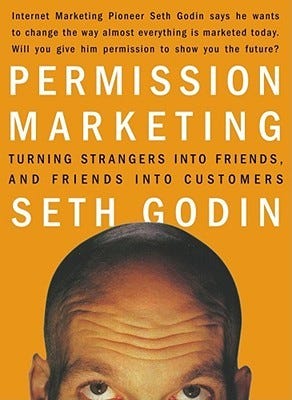
17. Positioning: The Battle for Your Mind: How to Be Seen and Heard in the Overcrowded Marketplace (Al Ries, Jack Trout)
Brand and Product Messaging can get confusing in a market which is oversaturated with ads. This book speaks about how to align with what’s already in the prospect’s mind and win that battle to be the best in that reality.
“The basic approach to positioning is not to create something new and different but to manipulate what’s already up there in the mind, to retie the connections that already exist.”
Bonus: also includes chapters on positioning yourself and your career.
Read to: understand how to build your brand and product strategy and communicate it effectively.
My rating: ★★★★☆
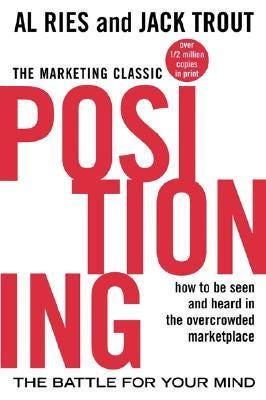
18. Enchantment: The Art of Changing Hearts, Minds, and Actions (Guy Kawasaki)
Having had to give many presentations and workshops I was looking for practical insight.
Unfortunately, much of the book is common sense. “Give firm handshakes”, “make eye-contact”, “be authentic”, “smile”?
It’s mostly a shallow collection of over-used advice and cliche ideas.
Read to: help you speak to people… if you’ve never read any other business book in your life.
My rating: ★★☆☆☆
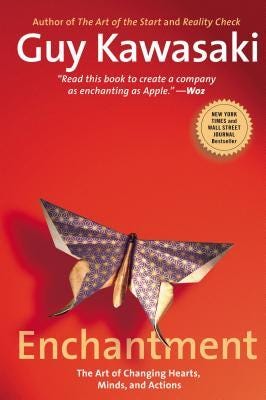
19. Customer Service Tip of the Week: Over 52 Ideas and Reminders to Sharpen Your Skills (Jeff Toister)
Working on improving customer experiences I get to be very close with customer service staff. This book is written for those working in a call centre or retail environment and who get to meet customers daily.
It’s very easy to follow and is full of quick-to-read tips which leaders can use to share with their teams. Although it might get obvious like “Answer the phone with enthusiasm”, “Serve one customer at a time” and “Make sure customers know your name”.. this might be the simple weekly reminder which you’ll need.
Read to: serve customers better when working in a customer care area.
My rating: ★★★☆☆
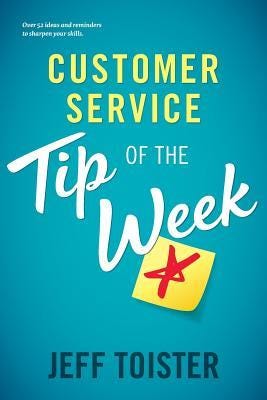
20. HYPERGROWTH: How the Customer-Driven Model Is Revolutionizing the Way Businesses Build Products, Teams, & Brands (David Cancel)
Hypergrowth is what many startups aspire to get to but few manage. In this book, David Cancel shares his experience building what he calls the “customer-driven model” and his obsession with customer feedback.
Surprising was the comment on why Waterfall and Agile are no longer fit for today’s world where we can get immediate feedback from customers… and where customers expect their voices to be heard, quickly. Solving problems for the customer is what comes first.
I would love to see more Tech people getting in touch with customers and obsessing with NPS scores daily! :)
Read to: lead a product team or organisation towards customer obsession.
My rating: ★★★★☆
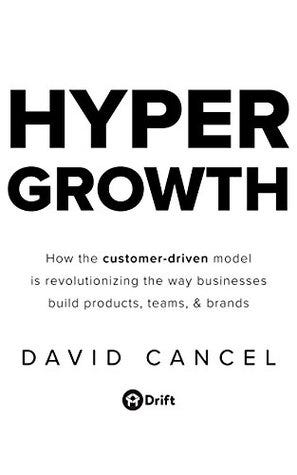
21. Insanely Simple: The Obsession That Drives Apple’s Success (Ken Segall)
It is always a challenge to build the easiest products, those which are “Insanely simple”. This book does not really give any learnings on that. It gives one story after the other of the author’s experience working at Apple and with Steve Jobs… “Steve did this… Steve did that”. It mostly covers well-known stories about Steve Jobs and his (bullying) ways of running meetings and taking decisions.
Read to: look inside Steve Jobs’ Apple reign and way of doing things.
My rating: ★★☆☆☆
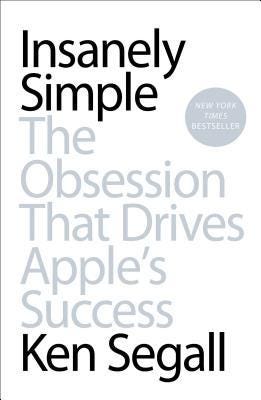
22. Extreme Ownership: How U.S. Navy SEALs Lead and Win (Jocko Willink)
When things go wrong I always seem to figure out a reason why it’s not my fault. Jocko says “you have to take ownership”… Extreme Ownership!
Only by taking FULL 100% responsibility for your actions and business decisions can you be an effective leader, correct what’s not working, and move on. Through his combat experience and stories, he examines a number of leadership lessons effective both in combat and in business scenarios.
Read to: get purpose and direction if you are a leader in any area of your life.
My rating: ★★★☆☆
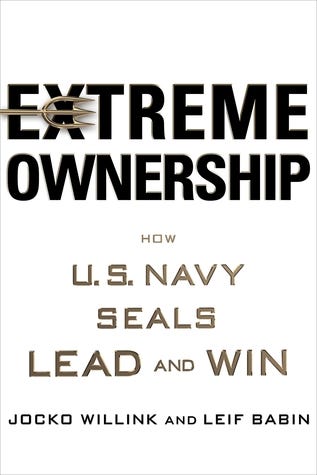
23. Brains Explains – Quantum Physics (Ben Still)
This is something different which I had on my bookshelf. A short book giving an introduction to Quantum Physics and packed with illustrations from Thunderbirds.
Although a simple introductory book, some parts still felt heavy and I’m by no means a physicist after reading this.
Read to: get an introduction to Quantum Physics.
My rating: ★★★☆☆
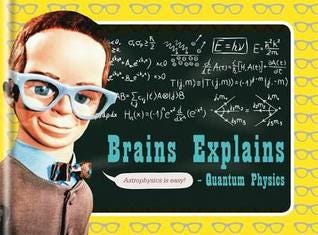
24. This is Marketing: You Can’t Be Seen Until You Learn To See (Seth Godin)
Best book I’ve read this year, collecting many of Seth’s thoughts around marketing and speaking more clearly about them.
“People like us do things like this” is the main thesis of this book. Discovering who the “people like us” are and who we want to serve then seeing how do they “do things like this”. In essence, finding the smallest viable audience which is specific and small enough that you can serve and bring a difference to.
Once you adopt a posture of service, of engaging with the culture to make change, the shift happens. Now, instead of asking, “How can I get more people to listen to me, how can I get the word out, how can I find more followers, how can I convert more leads to sales, how can I find more clients, how can I pay my staff . . . ?” you can ask, “What change do I seek to make?” Once you know what you stand for, the rest gets a lot easier.
Just read it.
Bonus: Continue listening to Seth’s thoughts on his podcast, Akimbo.
Read to: improve everything you do as a creator, a marketer, a leader, a person who wants change to happen.
My rating: ★★★★★
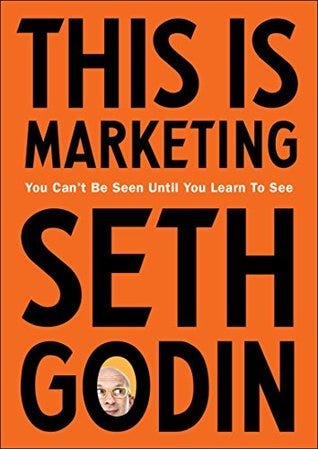
TLDR;
Which ones should you read?
1. Purple Cow: YES
2. Sapiens: MAYBE
3. Managing Oneself: YES
4. Your Best Year Ever: YES
5. Sleep Smarter: MAYBE
6. Lean UX: YES
7. Hooked: YES
8. Discipline Equals Freedom: YES
9. Ready Player One: YES
10. Just Get Started: NO
11. Ogilvy On Advertising: YES
12. Deep Work: YES
13. The Introverted Leader: MAYBE
14. Evolution: YES
15. The War of Art: YES
16. Permission Marketing: YES
17. Positioning: YES
18. Enchantment: NO
19. Customer Service Tip of the Week: MAYBE
20. HYPERGROWTH: YES
21. Insanely Simple: NO
22. Extreme Ownership: YES
23. Brains Explains: MAYBE
24. This is Marketing: YES!
Over to you
Which books are you going to read this year?
If you’ve found this post useful feel free to connect on LinkedIn, Twitter and on Know Your Social for more.
